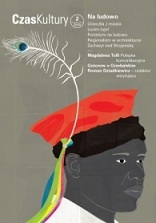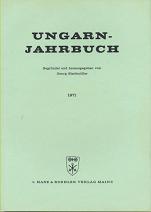



Keywords: regionalism; architecture; Expo; ethno picture; Mumford; Ricoeur; Frampton; local culture; universalism; Arts & Crafts
The author follows through the changing attitude towards the concept of regionalism in architecture. Noticing that redefinition of the local folklore became an important strategy in contemporary architecture (it is visible for example in the forms of Polish pavilions at Expo exhibitions: a highlander hut in 2000, a wicker front of the pavilion in 2005, and finally the project of 2010 pavilon, based on a folk art paper-cut) Świtek discusses manifestations of vernacular architecture: juxtaposition of vernacular trend with Engineering School, looking for the source of architecture in rustic designs, critical regionalism put forth by Mumford and carried on by Ricoeur and Frampton, or regionalism seen as a critique of global modernism. She also evaluates contemporary forms of regionalism in architecture and tries to find an answer to the question whether regionalism boils down to generating an artificial ethno-picture, or whether we are able to create innovative and original forms, embedded in, what the author calls, “ironic vernacularism”.
More...
Keywords: rural culture; feminism; rural women activities
The author of the text advocates that the roots of feminism are not solely urban. Rural women in Poland, whose social and artistic activities were so far limited to the space of Local Church, Country Housewives' Club or folk bands are beginning, although for the time being on a rather small scale, to take up new forms of activities.
More...
Keywords: folk music; world music; music festivals; Ukrainian culture
A conversation with Olga Mikhailczuk and Myrosława Ganiuszkina – the organizers of the Ukrainian World Music and Landart Festival “Sheshory”.
More...


Keywords: Hungary; nationalities; franchise;
The main features of the national minorities’ law. The battle for a reformed electoral law and the question of the national minorities. Electoral constituencies and the centralisation of elections. The national minorities’ political parties and the most frequent electoral frauds committed by the ruling parties. Electoral frauds committed by the national minorities’ parties.
More...
Keywords: Hungary; Soviet Republic; 50th Anniversary
This text is an analysis of the essay collection published for the 50th anniversary of the Soviet Republic of Hungary. A comparison between the various essays reveals the different epochs of Hungarian political historiography regarding the Soviet Republic in five and/or ten years intervals.
More...
Keywords: Order of Knights; Transylvania; Middle Ages;
The Teutonic knights fourteen years of presence in Transylvania can only be analysed on the background of Hungarian history and political situation of that medieval period. Only 28 historic documents concerning this issue have survived. The Teutonic Knights’ expulsion from Transylvania in 1225 is still discussed controversially among historians.
More...
Keywords: Sociology; Hungary; 20th Century
Sociological research pays more and more attention to the problem of science’s societal relevance. The Peoples’ Democracies in East Central Europe, where the political primacy is a strict rule, are the best examples for reciprocity between politics and science. This essay exemplifies this problem in the case study of sociology in Hungary.
More...
Béla Grolshammer: BALLA, DEMETER Junges Ungarn. Budapest: Corvina 1970. Gyula Borbándi: Hazánk, Magyarország [Unsere Heimat, Ungarn]. Chefredakteur FERENC ERDEI, Generalsekretär der Ungarischen Akademie der Wissenschaften. Budapest: Akadémiai Kiadó 1970. Ekkekard Völkl: A magyar történettudomány válogatott bibliográfiája 1945—1968. [Eine Auswahlbibliographie der ungarischen Geschichtswissenschaft 1945—1968]. [Hrsg.] A Magyar Tudományos Akadémia Történettudományi Intézetének munkaközössége [Autorenkollektiv des Geschichtswissenschaftlichen Institutes der Ungarischen Akademie der Wissenschaften]. Budapest: Akadémiai Kiadó 1971. Karl-H. Nehring: JÜGELT, KARL-HEINZ Hungarica Auswahl-Katalog der Universitätsbibliothek Jena. Weimar: Böhlaus Nachfolger 1961. Gyula Décsy: KÁROLY, SÁNDOR Általános és magyar jelentéstan [Allgemeine und ungarische Bedeutungslehre]. Budapest: Akadémiai Kiadó 1970. Gyula Borbándi: Magyarország gazdaságföldrajza [Wirtschaftsgeographie Ungarns]. Redigiert von TIVADAR BERNÁT. Budapest: Tankönyvkiadó 1969.
More...
Wolfgang Veenker: MOLNÁR SZENCIENSIS, ALBERTUS Nova Grammatica Ungarica. With an Introduction by GYULA DÉCSY. Bloomington, The Hague: Indiana University Publications [1969]. Robert Bacsváry: VANINO, MIROSLAV Isusovci i hrvatski narod [Die Jesuiten und das kroatische Volk]. Band 1. Zagreb: Filozofsko—Teoloski Institut 1969. László Révész: VARGA, JÁNOS Jobbágyrendszer a magyarországi feudalizmus kései századaiban 1556—1767 [Das System der Untertänigkeit in den späten Jahrhunderten des ungar-ländischen Feudalismus 1556—1767]. Budapest: Akadémiai Kiadó 1969.
More...
Horst Glassl: FINK, KRISZTINA MARIA Die österreichisch-ungarische Monarchie als Wirtschaftsgemeinschaft. Ein historischer Beitrag zu aktuellen Integrationsproblemen. München: Rudolf Trofenik 1968. Gernot Seide: Sozial-ökonomische Forschungen zur Geschichte von Ost-Mitteleuropa. Budapest: Akadémiai Kiadó 1970. Ekkehard Völkl: PRODAN, D[AVID] Supplex Libellus Valachorum. The Political Struggle of the Romanians in Transylvania during the 18th Century. Bukarest: Academy of the Socialist Republic of Romania 1971 Gyula Borbándi: SIPOS, PÉTER Imrédy Béla és a Magyar Megújulás Pártja [Béla Imrédy und die Partei der Ungarischen Erneuerung]. Budapest: Akadémiai Kiadó 1970. Antonio Schmidt: WAGNER, WALTER Geschichte des k. k. Kriegsministeriums. Band 2:1866—1888. Wien, Köln, Graz: Hermann Böhlaus Nachf. 1971.
More...
Keywords: Hungary; Croatia; Language Dispue;
The language dispute’s emergence during the Hungarian diet 1790/91. The encroachment of Hungarian language in Croatia 1792-1830. The Illyric Movement among the Croats. Intensification of the Hungarian-Croat antagonism 1832-1835. The Croats’ dependence on Vienna 1835-1847. Abolishing Latin as official language.
More...
Keywords: Anabaptism; Anianism; Carpathian Region
The Habans’ pottery as a challenge for research. The history of Anabaptists and Hutterites. Antitrinitarians, Arianists and „New Christians“. The adoption of Italian pottery. The Hutterite movement’s encroach upon Hungary. The Arianianist arcanists as agents of technical progress.
More...
Julius Rezler: ENDREI, WALTER Magyarországi textilmanufakturák a 18. században [Ungarländische Textilmanufakturen im 18. Jahrhundert]. Budapest: Akadémiai Kiadó 1969. Horst Glassl: KIRÁLY, BÉLA K. Hungary in the Late Eighteenth Century. The Decline of Enlightened Despotism. New York: Columbia University Press 1969. Rainer Szegedi: KÖPECZI, BÉLA A Rákóczi-szabadságharc és Európa [Rákóczis Freiheitskrieg und Europa]. Budapest: Gondolat 1970. Paul Bődy: LENGYEL, MÁRTA Reformersors Metternich Ausztriájában [Reformerschicksal im Österreich Metternichs]. Budapest: Akadémiai Kiadó 1969. Gabriel Adriányi,: TOMKO, JOSEF Die Errichtung der Diözesen Zips, Neusohl und Rosenau (1776) und das königliche Patronatsrecht in Ungarn. Wien: Herder Verlag 1968. Adalbert Tóth,: TRÓCSÁNYI, ZSOLT Wesselényi Miklós és világa [Nikolaus Wesselényi und seine Welt]. Budapest: Gondolat Kiadó 1970. László Révész,: VARGA, JÁNOS Typen und Probleme des bäuerlichen Grundbesitzes in Ungarn 1767—1849. Budapest: Akadémiai Kiadó 1965.
More...
Keywords: Grillparzer; Katona; Bánk-Bán
The history of the peoples of the Dual Monarchy was examined more thoroughly than the history of these peoples’ literature. The main reason is the linguistic diversity which demands a significant linguistic diversity. In this essay the author compares two poets from adjacent literatures: Grillparzer for the Austian side and Katona for the Hungarian side.
More...
Keywords: Oszkár Jászi; Hungary; Society; State
The external features of Oszkár Jászi’s path of life. The formation of Hungarian sociology. The periodical Huszadik Század. Bourgeois radicalism. Critique on Herbert Spencer. The role of Marxism and later Revisionism. Founding the Hungarian Socialist Party. Planning the foundation of a new party. The sojourn in Paris and its consequences. Battle for a universal and secret franchise. Affiliation with the Freemasonry. Founding of the Free School for Social Studies. Founding the Martinovics Lodge and the Galilei Circle. Politics of assimilation and suggestions how to solve the national minorities’ question. The Central Europe Plan.
More...
Keywords: Burzenland; Kumania; Kipchak; Teutonic Knights; Middle Ages
The Teutonic Knights’ history and mission prior to 1211. Geography and history of Burzenland up the 13th Century. The Teutonic Knights’ vocation to Burzenland. The boundaries of the Order’s territory in Transylvania. The Teutonic Knights’ knight-service to the Hungarian Crown. The settlers’ origin. The Organisation of the national defence in Burzenland. Forms of settlement in Burzenland. The Teutonic Knights as vassals of the Hungarian Crown. Expanding the Order’s territory into Walachia and Moldavia. The battle for Episcopal autonomy. Expulsion from Burzenland and Kumania. Burzenland and Kumania after the Teutonic Knights' expulsion.
More...